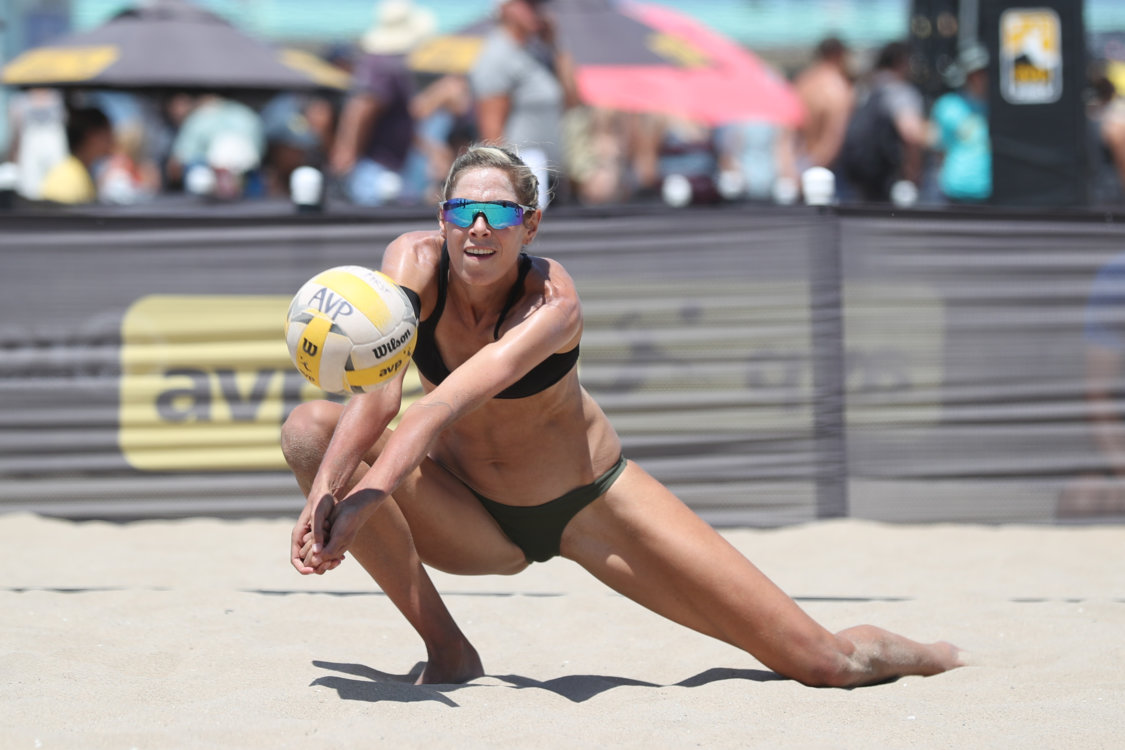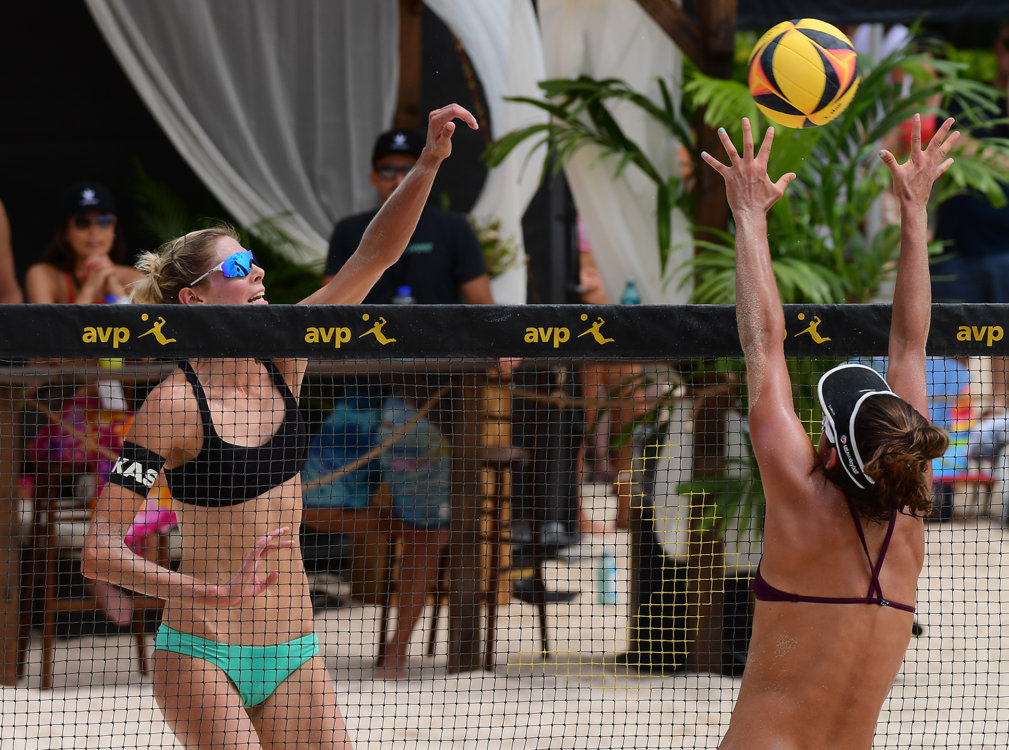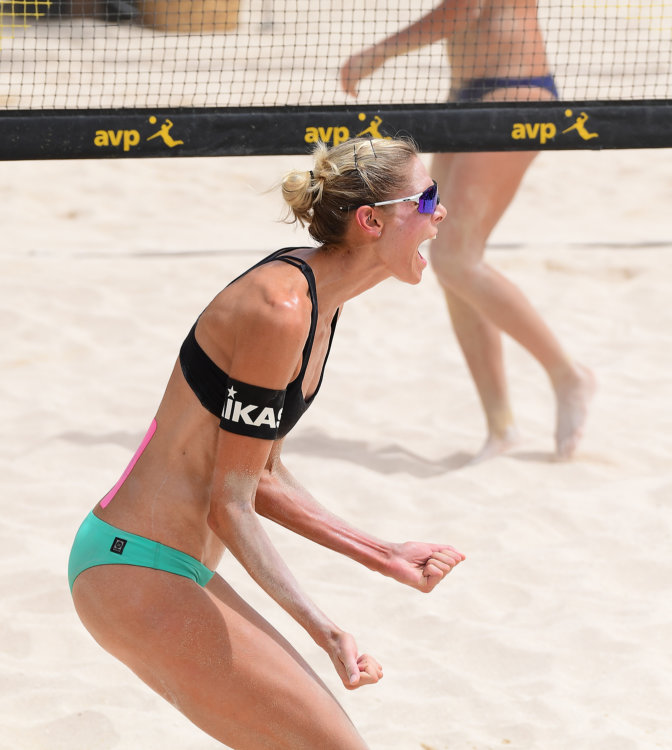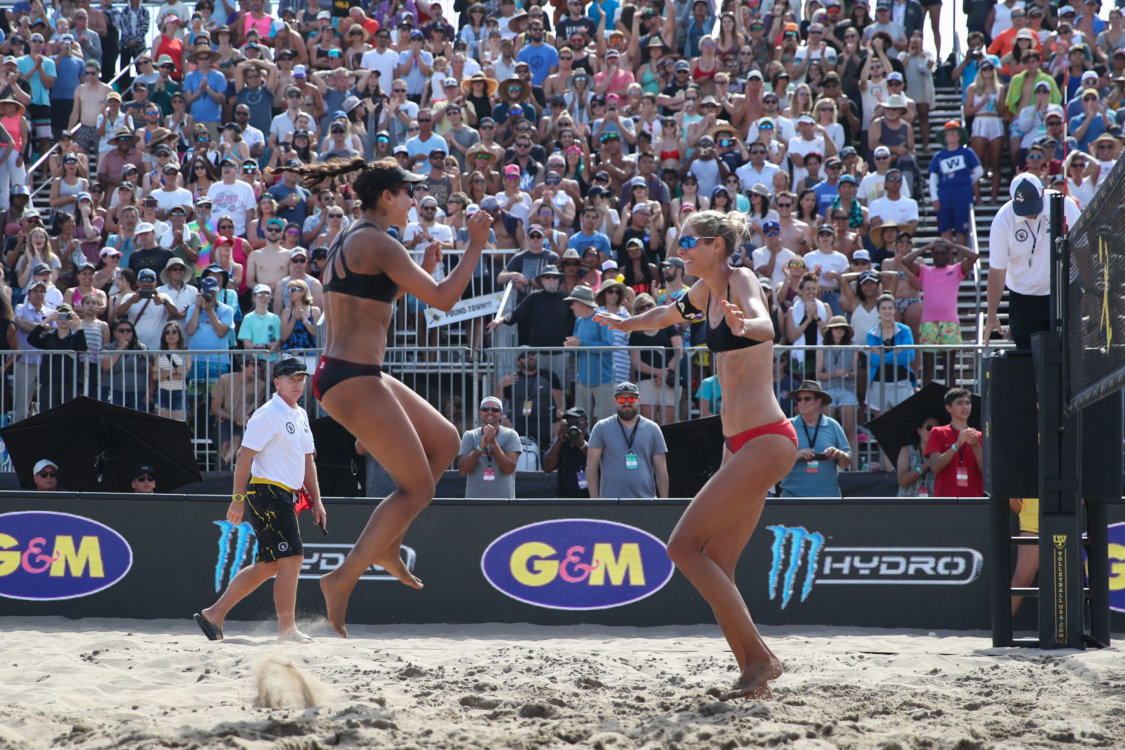Dear little Sarah,
Do you remember the first time you heard about the Olympics? It was the summer of 1992, and your parents were watching the Barcelona Games on TV. It was the first time you could semi-comprehend what was going on, and after asking countless questions, you came to understand that the Olympics happen every 4 years and was where the world’s best athletes came together to compete for their countries.
Do you remember what you told your parents after you found all of that out? That’s right—you told them that you were going to be an Olympian someday too. I know you recognized disbelief in their eyes, and in the way they patted your head and offered a courtesy, “Okay, Sarah,” because what else were they supposed to say? You were five and were still playing “Keep the Balloon off the Ground” and shooting baskets on your Larry Bird mini-hoop. They knew you were athletic, but shooting a jump shot on a mini-hoop as a kindergartener is a far cry from being one of the best athletes in the world.

That single statement to your parents was the catalyst that set your entire journey in motion. It was the first of hundreds of goals that you will set for yourself over the years, and will prove to be one of the most elusive for a long time, but I am getting ahead of myself. The point is that even as a five year old, you knew that you wanted to be great, and would do whatever it took to get there.
A couple years have passed since you decided you were going to be an Olympian. You have spent, and will spend countless more hours in the gym watching your parents play and coach volleyball and basketball, soaking in everything they say and do. You will go to the U.S. to watch some of their former athletes play in the NCAA, and will decide that you want to do the same because it will make you a better athlete in preparation for being a professional and Olympian. You play club soccer and basketball, you swim, and you play tennis. You love being active and being a part of a team, but most of all, you love to compete.
Pretty soon, your parents will finally say you can play club volleyball. They will make you wait because the youngest age group is 14U, but you will wear them down, and they will let you try out as a ten-year-old. I love how fearless you will be at that age; you won’t care that all of the girls on your team are basically teenagers, interested in boys and school dances and makeup. You will be too young to even notice. You will just be so overjoyed at the opportunity to finally play the sport you had been watching and practicing your entire life.

Your dad will be your coach until you leave for university. The two of you were best buddies before you started playing volleyball, but will eventually become inseparable. It will not be easy being the coach’s kid, and let me tell you…. it will get a lot harder before that chapter is over. He will expect more from you than anyone else, he will punish you more harshly than anyone else, but he also believes in you more than anyone else on the planet. It is important for you to remember that on the days you might struggle. He loves you more than anything, and believes in you even more than you will ever believe in yourself.
When he is yelling at you, you will always maintain eye contact and say, “Yes, sir,” because that shows respect. You will always agree with his criticism because the coach always knows best and “excuses are for losers.” You will never cry, because crying is weakness, and you will always make sure to win the suicide runs because “if you aren’t going to be good, you’d better be in shape.” When he will pull you to center court alone during a time out to scream at you for how “bad” you are playing, you will nod and come out even better because you are going to be the leader of your team and it will be your responsibility to find a way to win no matter what.
These interactions will make a deep impact on you in the years to come. On one hand, having those experiences will make you incredibly resilient and well-equipped to handle the countless similar situations, and worse, that you will face with many other coaches and teams in the future. On the other hand, this type of conditioning will prevent you from understanding or appreciating how good you really are. You will struggle to acknowledge the things you do well, you will fixate on the odd mistake you make, and you will have a really hard time letting people in, because you have been led to believe that vulnerability is weakness.

The ironic thing is that you are the last person who needs to be coached in this way because you are the hardest-working, most disciplined, intrinsically-motivated kid I have ever met (and I’m not biased at all 😊). As an adult, there will be a few years where you really struggle to break away from the constant thoughts of not being good enough, because that is what you were made to believe for your entire childhood. The inability to be patient with yourself or to acknowledge any of the good things you do is not healthy, and it will take a lot of hard work to finally be able to see yourself as you really are. With the self-awareness that comes with age, experience, and having some really special people in your corner, this mental and emotional evolution is going to make you an incredibly compassionate and loving teammate and coach, and will also elevate you as an athlete. Eventually you will even grow enough to be able to have an honest conversation about all of these issues and resentments with your dad. He will surprise you with an apology, and you will understand for the first time just how proud of you he really is. You won’t understand how much you need that until it happens, so take my word for it for now.
The rest of what I want to share are things I wish someone had told you earlier in life. Your life will follow the exact path that it is supposed to follow, as there will be lessons and triumphs, and joys and hardships every step of the way. There will be some confusing and difficult moments ahead, and you will always find a way to navigate through them, because you will end up exactly where you are supposed to be.
1. Girls and boys are not the same. You have spent most of your life outside of volleyball playing with and against boys. You have observed boys and men competing since you were a little kid watching your dad coach, so your example of what a competitor looks like has been shaped by the opposite gender of your own. Boys interact with each other in much different ways than girls do, especially on the court. In high school, the ways that you will interact with your teammates and believe to be normal, are actually not, and thirty-three-year-old Sarah is cringing thinking about it. It is possible to get the most out of your teammates by being respectful and tactful (and it is actually a lot more effective) without sacrificing your intensity or competitive fire.
2. Always walk toward the hard things. When you are fourteen, you will be asked to try out for the Junior National Team, and a couple years after that, you will be invited to try out for the Senior National Team. You will be younger than the Junior girls by at least 3 years, and younger than some of the Senior women by sixteen years. It will be terrifying, but you are good enough. You will make both teams. You won’t want to move away from home for a whole summer (and during the fall for the Senior team). You will call your parents crying and begging to come home often. Don’t do it. Stay and endure the difficult moments. You want to be the best, and training with the best athletes in your country is the way to do that. These experiences will strengthen you and better prepare you to take on even bigger challenges later on.
3. Be who you are. When they tell you that athletes aren’t quiet, and that you have to be loud, they will be wrong. When they try to embarrass you by making you scream in practice to be who they want you to be, that will say more about their shortcomings than yours. There is nothing wrong with you; you are an introvert. You get energy from the calm. You compete with fire, but live your life in tranquility. You don’t operate in the same way that many athletes do, and you will be misunderstood more times than you can count. You will be called a bitch because you don’t smile enough and have limited interest in making small talk, but you know who you are, and you are comfortable in your own skin. Don’t let them change you. If everyone was the same, imagine how boring this life would be.
4. You will make mistakes. As you move into adulthood and start to figure out who you are, you will make a lot of mistakes. Some will be small, and some will be really big. Making mistakes and learning from them is part of growing up, but you have a good heart, so don’t let these errors define you. Approach all of these moments with the intention of looking at yourself through an honest lens, learn what you need to learn from them, and become a better and stronger person because of them. The people who know you will stand by your side and see you through the other side.
5. Forget the haters. As you get older, you will realize that it is much easier for people to criticize others than offer them compliments. You are choosing a life where you will succeed and fail publicly, and that gives people free rein to say whatever they want about you. It is safer for them to find your shortcomings and try to bring you down, instead of looking introspectively at all of the reasons they aren’t in your position. You will be called ugly and anorexic. In another breath, you will be called fat. They will say that you are successful because of your height and then make fun of your height. They will say that you aren’t good enough to replace Sheilla or Tay Aguero during club season, but they don’t know you or how bad you want it. You will prove them wrong. They will tell you that you will never make it on the beach because you play opposite indoor and don’t know how to set or pass. They will say that you don’t know how to think for yourself because you have had a coach on the sideline your whole career. They don’t know anything about you. They don’t know that you have been preparing for this since you were 5 and you will do whatever it takes. You will hear every insult and be told every dumb reason why you are good, but none of them will be the truth. The truth is that you want it more than anyone else. Period. For over twenty years, every decision you will have made will have been to be the best volleyball player you can be, but none of them know that. They only see the final product. Forget the haters….. they know nothing about you.
6. Beach will change your life. After playing three Olympic cycles with the Canadian indoor team, you will start playing beach volleyball at 26 as a way to get to the Olympics. On your first day on the sand, you will be introduced to a man named Scott Davenport who will change the trajectory of your life forever. Scott will transform you from a 100% indoor player to a beach volleyball Olympian. He will teach you the technique and, more interestingly, the tactical side of beach that speaks to your analytical mind. He will become family. After years of switching between indoor and beach, you will eventually walk away from the indoor game completely to focus on beach. Leaving indoor will be one of the hardest things you will ever decide to do, but in your first full year on the beach, you will become a World Champion. I know you don’t expect it now, but beach volleyball will be the vehicle that carries you to your biggest volleyball moments. It will change your life completely, and you will fall in love with the game in a way you never thought possible.
Sarah, I am sitting here writing to you as a thirty-three year old who is still playing the game we love, and there is only one of our goals left to achieve. You know which one it is. You have another couple of decades of volleyball to play before you get to where I am now, but you will love the sport as much, if not more, at thirty-three as you do as a little kid.

It’s not just about competing and winning and reaching goals anymore, even though those things still play a big role in my life. Now, I work harder than ever to help the people around me get better, both as people and as athletes. I want to see my teammates grow and become great, and I want to give my time to the next generation so that they can live the life I have been able to. I have so much gratitude when I walk down to the beach every day. I just can’t believe I get to play this sport for my job.
I’m at the age where people are asking me if I am going to hang it up after Tokyo. I know when I was your age, I never in a million years thought I would play this long. Guess what…. it’s not over yet. I’m still improving, I’m still growing, and I still love competing.
Why say goodbye?
I can’t wait to write you again in four years and tell you about all the amazing things I have learned!
Sarah xoxo